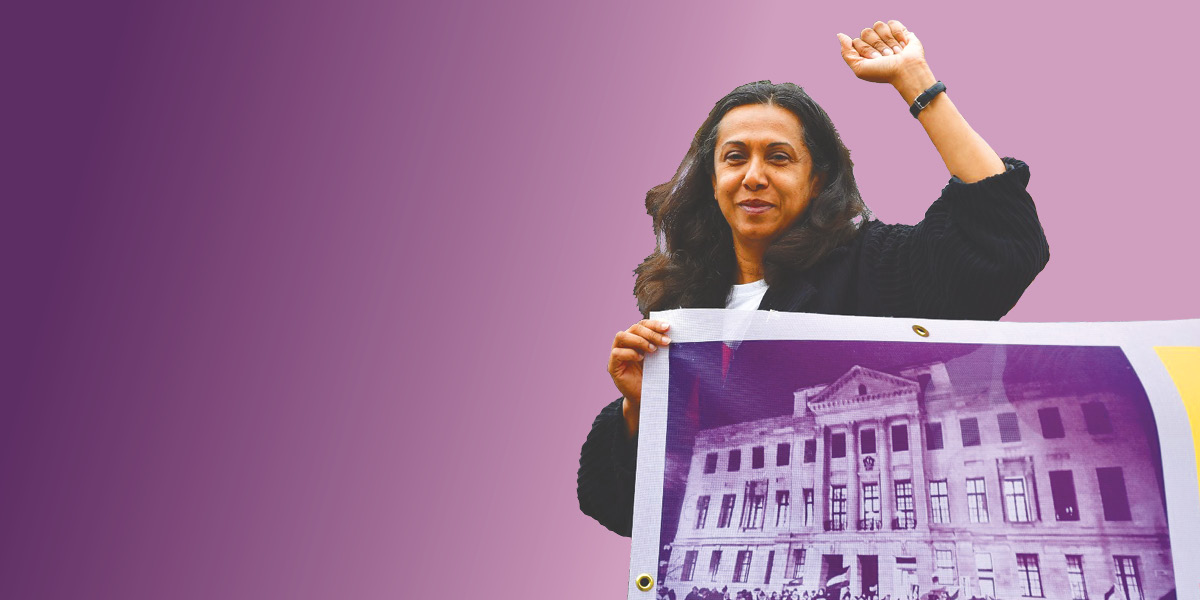Growing up in India, I knew about the consequences of the British strategy of divide and conquer and partition. I saw Muslim shops being burnt by Hindutva mobs. My city, Hyderabad, changed from a secular, safe place where we celebrated each other’s festivals and respected each other’s pork/beef/veg diets to closed doors and interfaith distrust.
A terrified, blood-soaked Sikh, chased by an angry mob, hid in our garage – that was an awakening to the changing world around me. It was the early-mid ’80s. I must have been about 12.
I came to England in my twenties. As a Muslim, I kept my head down. Then I met – and eventually married – a British white person. I got the courage to speak up. I started going on pro-Palestine demos.
Hearing Jeremy Corbyn speak at a Palestine demo in 2015 was the first time I had heard a political figure speaking truth about the Palestinian cause. When I heard he was being considered as leader I felt hope and excitement, cheering every nomination that came in. I joined Labour, organised within the left in our constituency and across London. I remember the excitement of the 2017 manifesto and the sinking feeling when we lost in 2019.
During the rise of Black Lives Matter, I led our ward in a protest across Haringey and Camden. As ward campaigns officer, I organised ‘Let’s Talk About Windrush’ with an all-black panel. The CLP [constituency Labour Party] initially withheld payment for the venue as there was a Palestine flag in the room and a Holborn-left banner.
As Keir Starmer started to lead the party, the left were removed from all posts. My application to stand in council elections never reached the panel due to my stand on campaigning only for anti racist candidates. That told me all I needed to know. Given Starmer’s authoritarianism and stance on the Gaza genocide, we realised our constituency member Andrew Feinstein – eloquent, Jewish, an investigative journalist – was the only one who could stand against him in the general election.
My favourite moment in Andrew’s campaign was at a meeting organised by the Muslim community, when they decided to back him. One person called him ‘our mini Nelson Mandela of Camden’. They all wanted to take selfies with him.
I got involved with local activist group Streets Kitchen as campaigns officer, just before lockdown. We support our homeless community by providing food on the streets, organising clothes, shoes and underwear through the Covid response team I had set up. Our slogan is ‘Solidarity not Charity’.
I accepted the Ron Todd Award for ‘Socialism of the Heart’ on behalf of Streets Kitchen in 2022.
I work in a school and the food poverty and terrible housing conditions facing young families is heartbreaking. We must make sure the local Bangladeshi, Somali and working-class community have a voice; organise independents to stand in council and national elections; and campaign for investment in local services, for anti racism and peace. With the success of independent candidates nationally at the 2024 general election, including many grassroots activists, we have hope for a change in how politics is done.
Shezan Renny was speaking to Ananya Wilson-Bhattacharya










